It’s been another fantastic year for PLF’s scholarship students and we continue to be beyond proud of our University Scholars. By and large none of their parents went to school at all, or perhaps only a couple of grades of primary school. As a result, the family is trapped in a life of hardship, working in rice fields or as unskilled day labor. These students will step out of college into a middle-class income, lifting their families out of poverty in one generation. Their own children will not struggle for their education in the same way they had to.
“The ripple effect of one student completing University and realizing their potential cannot be measured and is a pivotal moment in the family’s story. When several families experience this at once in a village, the tide turns; the whole community understands for the first time the value of education and everything changes.”
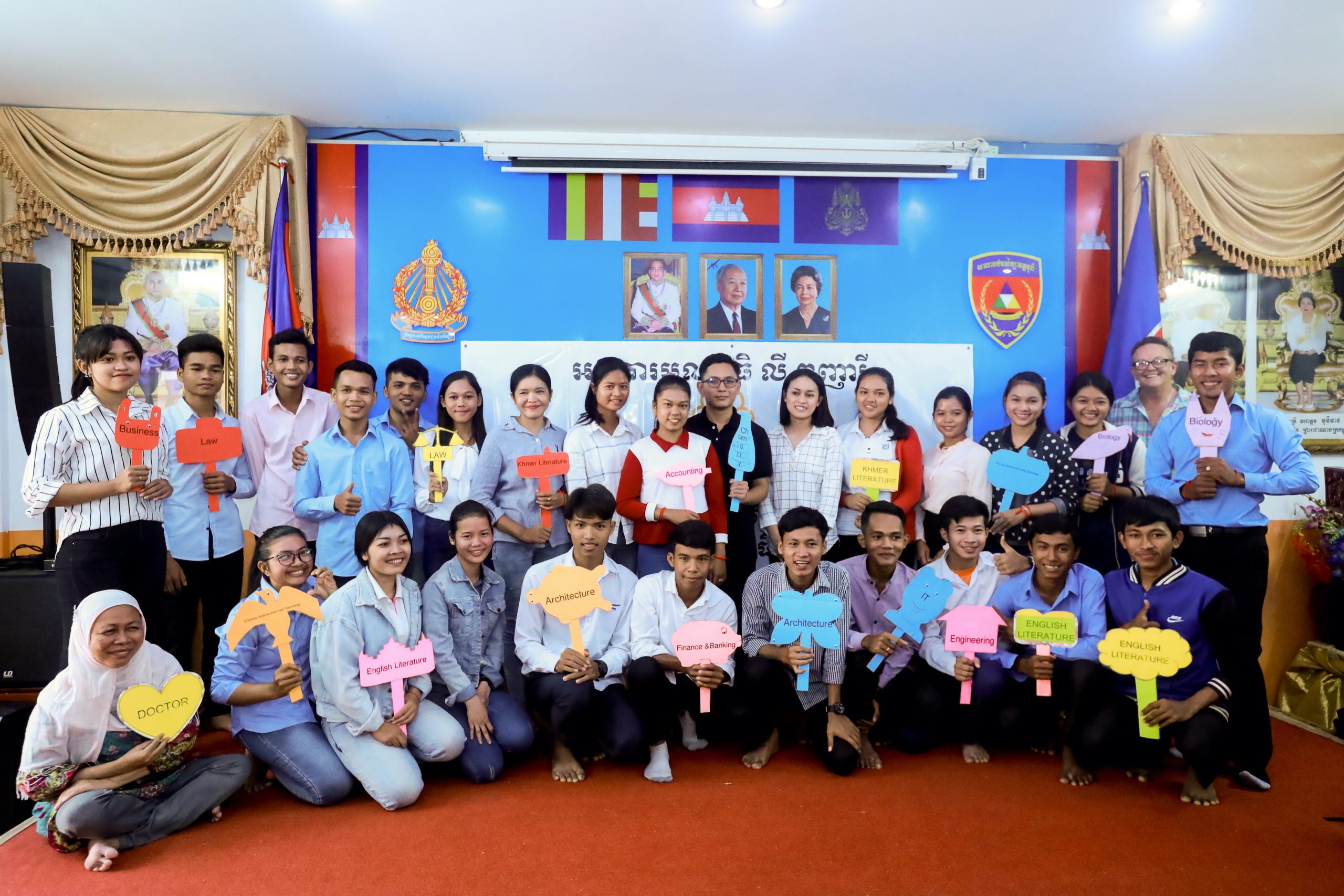
Each year we have more and more students graduating high school making the job of choosing our University scholarship students harder and harder. It’s a good problem to have and the challenge for us is to support as many of them as possible to get a University education. The difference between the job prospects of a high school graduate and a high school drop out is not so great. A University education is what really makes a difference to their earning potential.
According to a recent report from the OECD, “Secondary school dropouts can earn twice as much in high skilled non manual jobs than high school graduates (See table). This can be explained by the fact that many school graduates end up in the same occupations than dropouts even after they finish school. Dropouts earn more due to the years of experience already accumulated. It is only from higher education and vocational training that graduates earn more than dropouts.” Read the full report here.
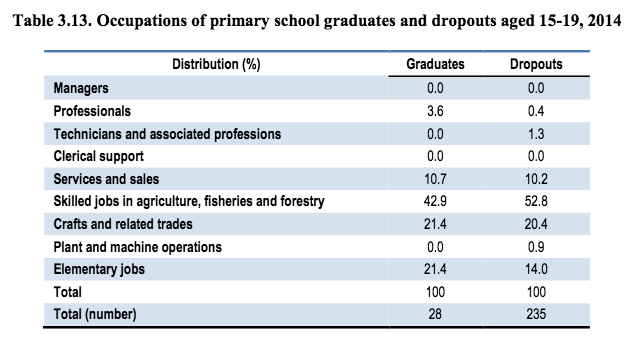
We’ve gradually been refining our high school scholarship program since 2016, when we did some rethinking of our strategy and made the decision to focus extra classes on grade 12 students only.
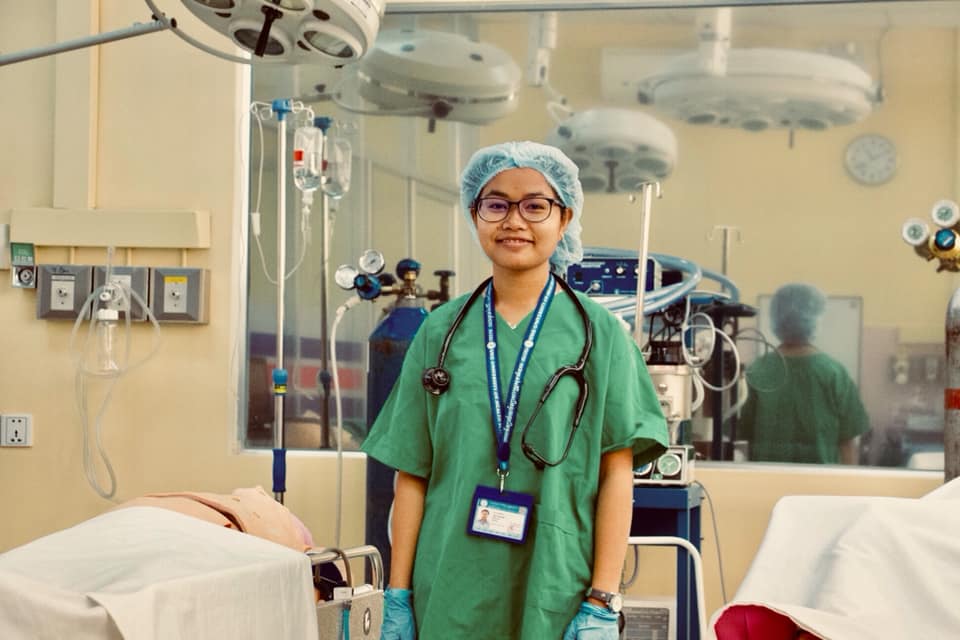
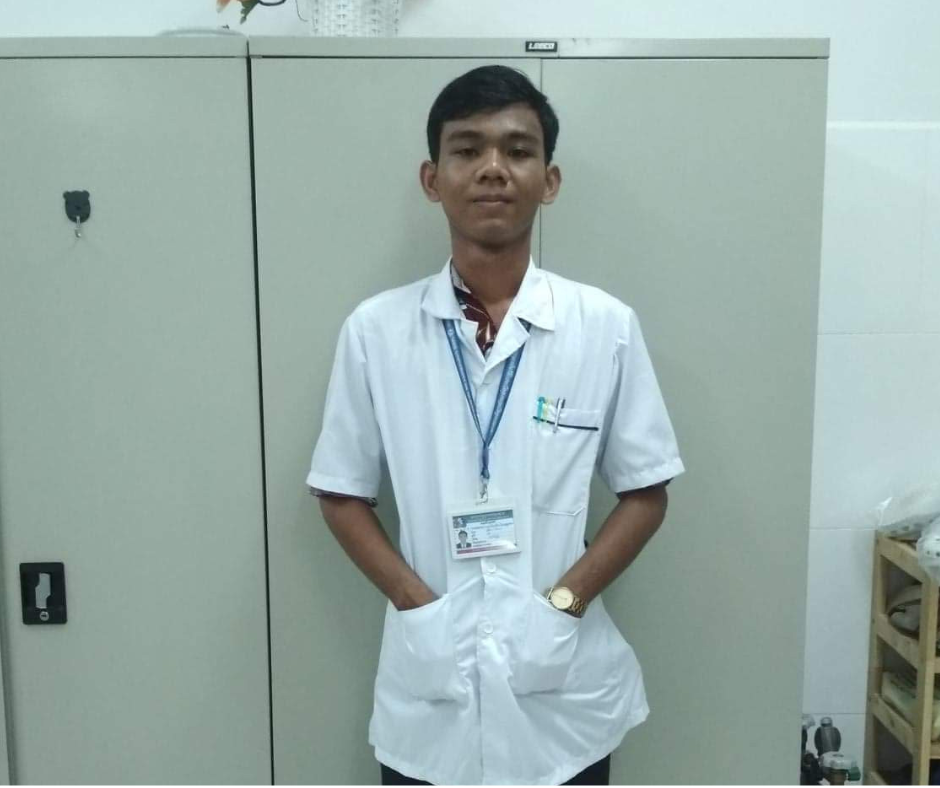
We continue to collect data and study it, and this year, we’re beginning to notice that our high school scholarships are really helping students who are focusing on science and math subjects the most, and this will help guide our decisions when awarding scholarships in future years. This year 81.01% of our students passed their final high school exams. The national pass rate was only 68.59%. The truly nerdy can circle back to our analysis in October regarding pass rates and what we think they mean.
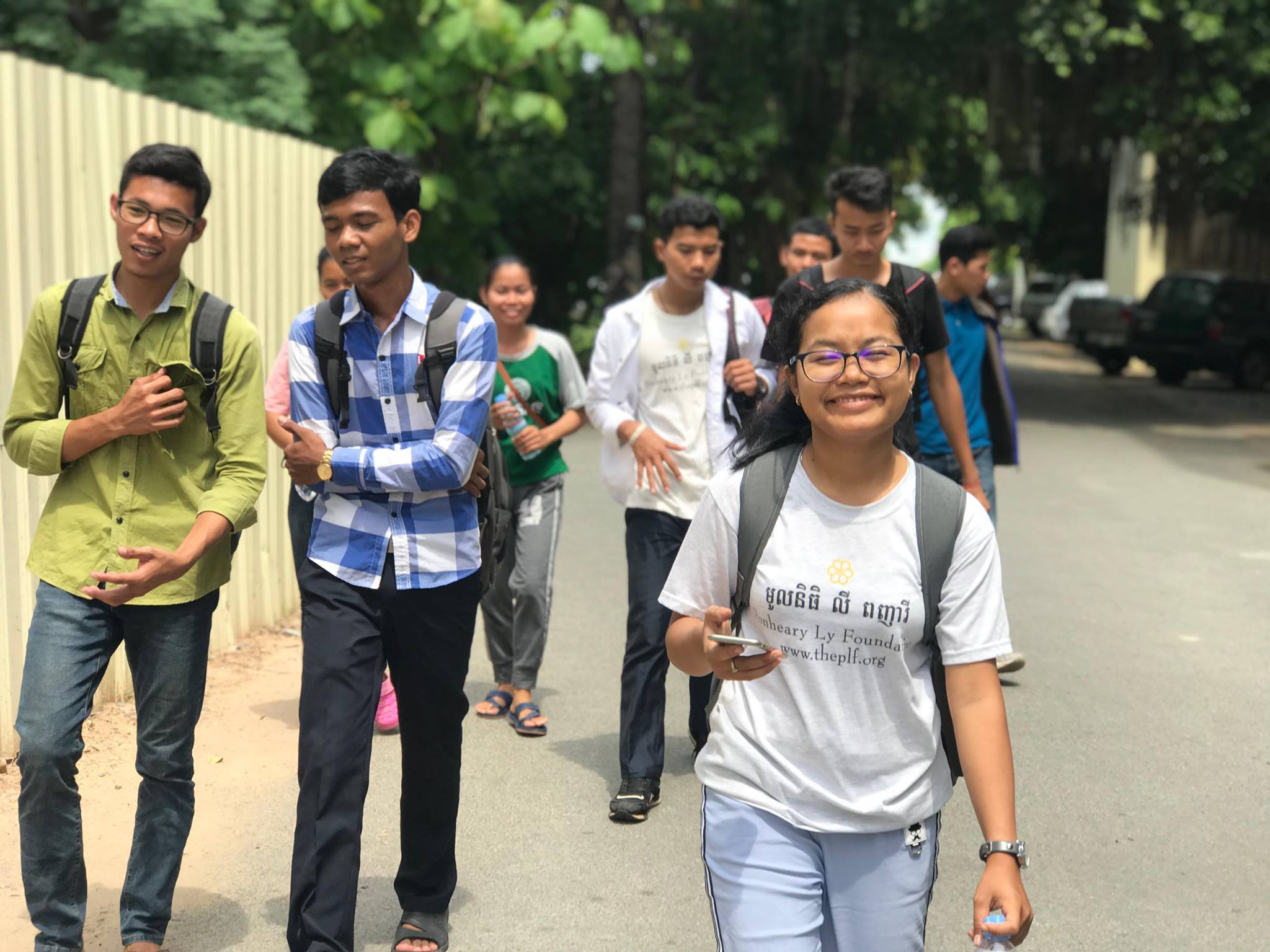
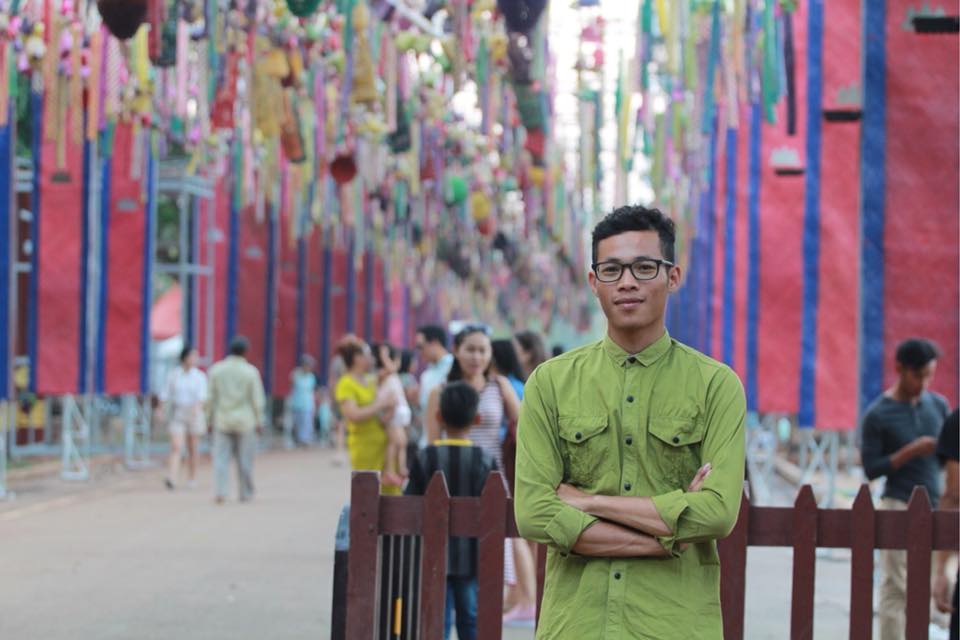
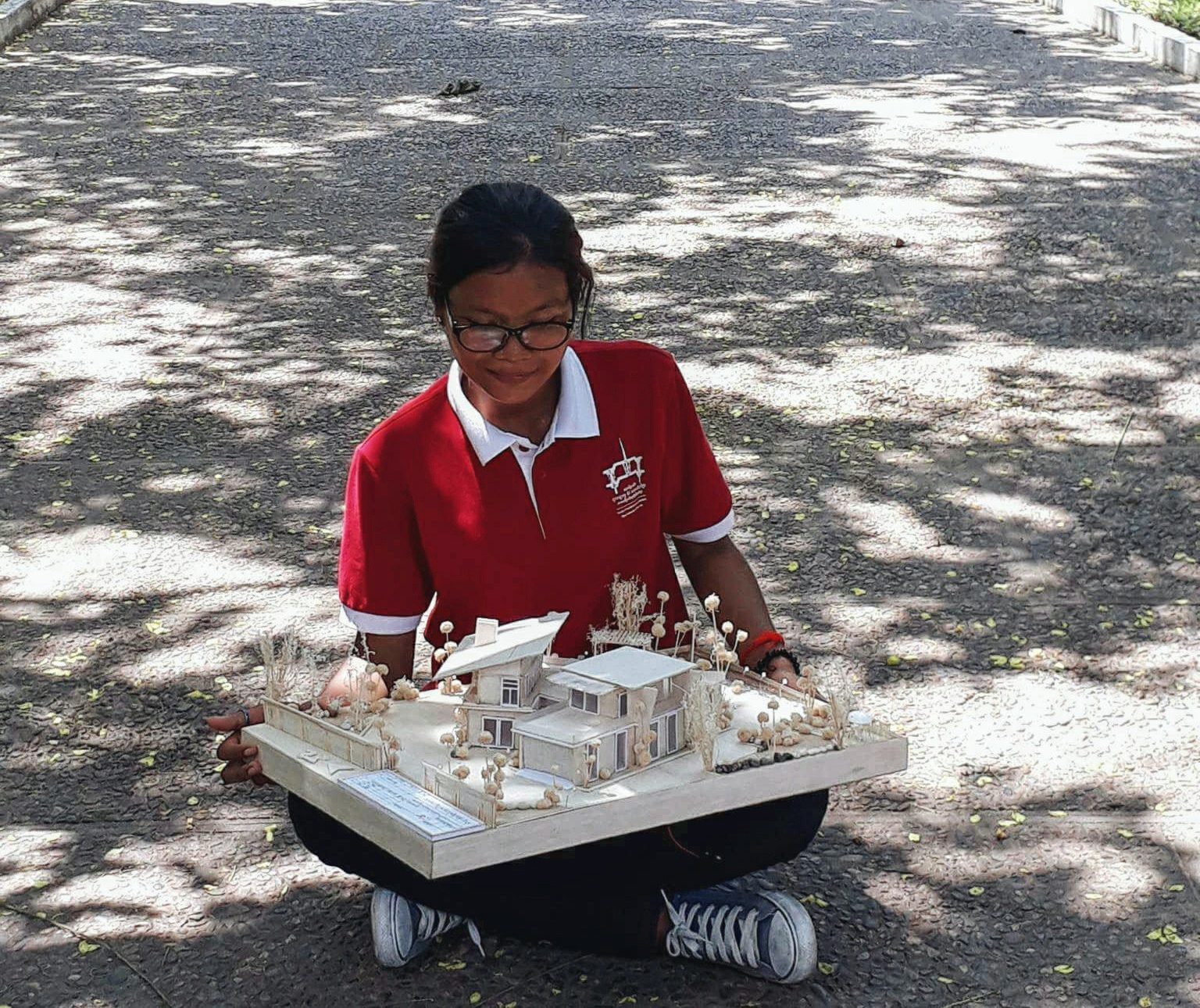
But it’s not just about going to University. It’s about going to the right Universities, studying the right subjects that Cambodia needs in order to develop the country. For that reason we only support a limited number of subjects at the best quality Universities in Phnom Penh, Siem Reap and Battambang. We also counsel students thoroughly on their subject choice throughout their final years of high school.
Here’s what our current University population looks like:
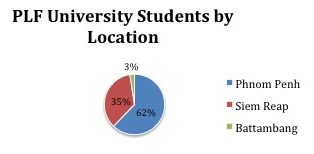
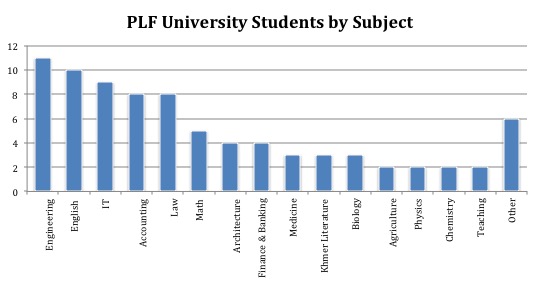
Everything we do in our early years programs builds up to this. We want to support all of our students that can achieve a University education. This year we awarded 26 University Scholarships, a record number for us!
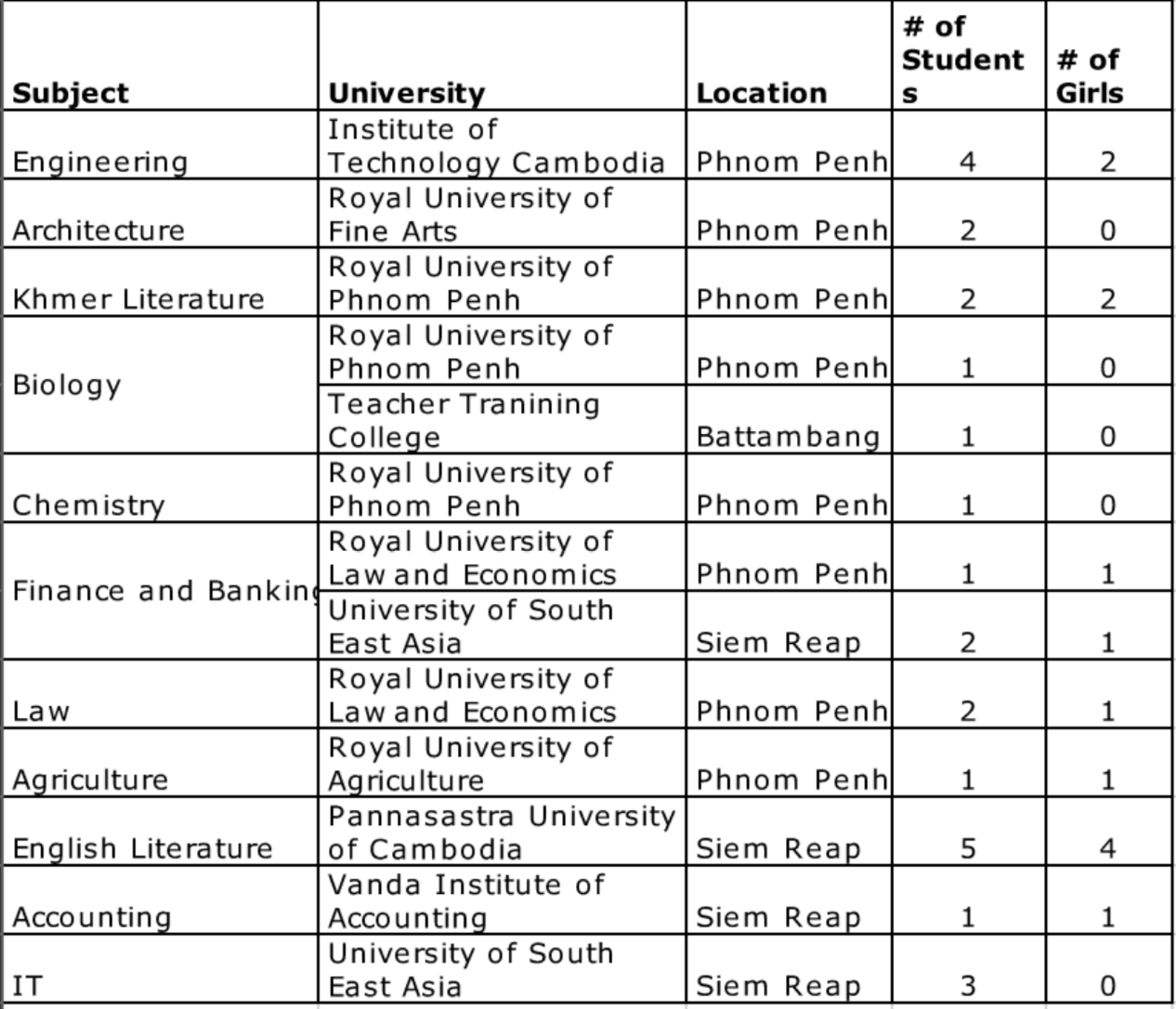
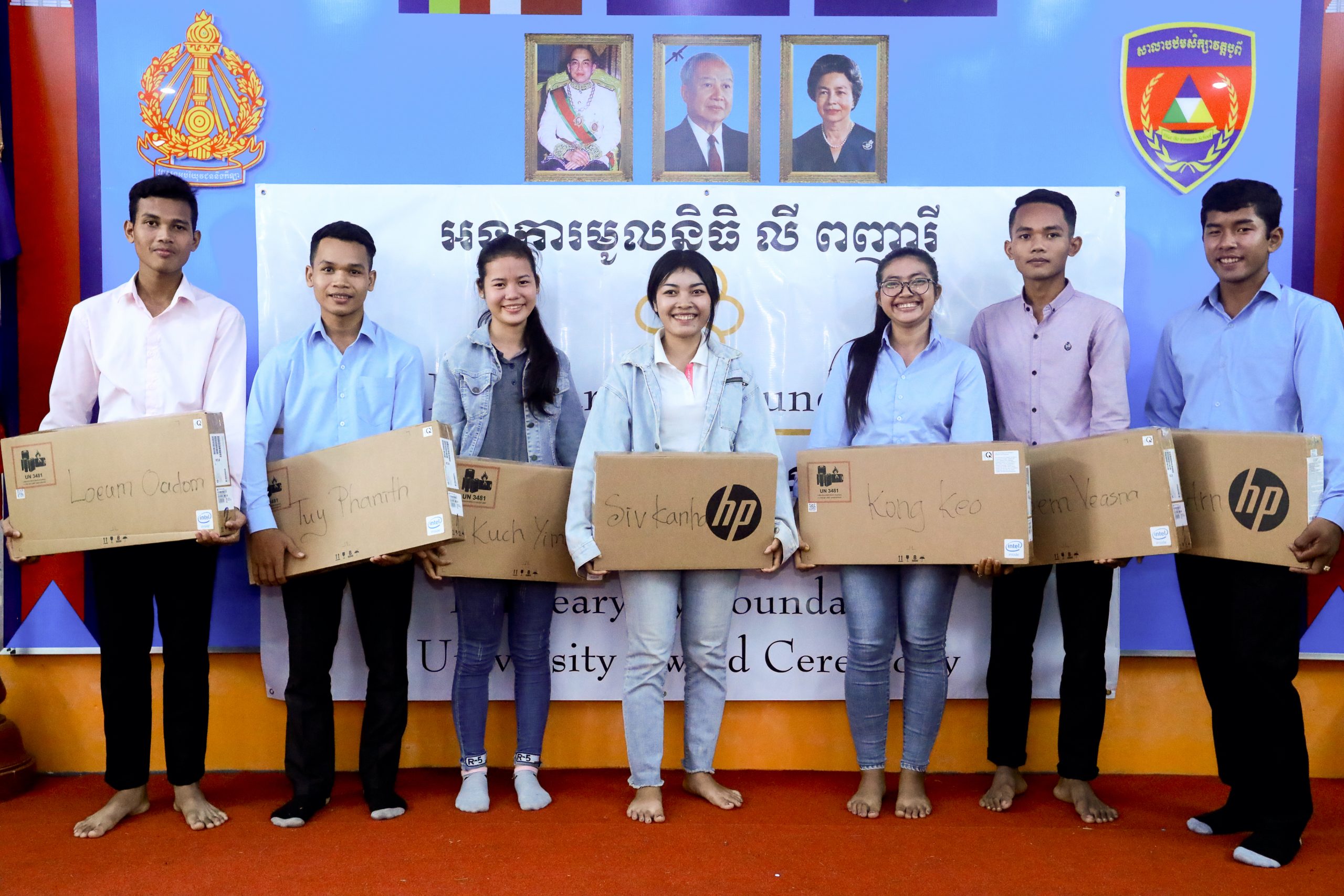
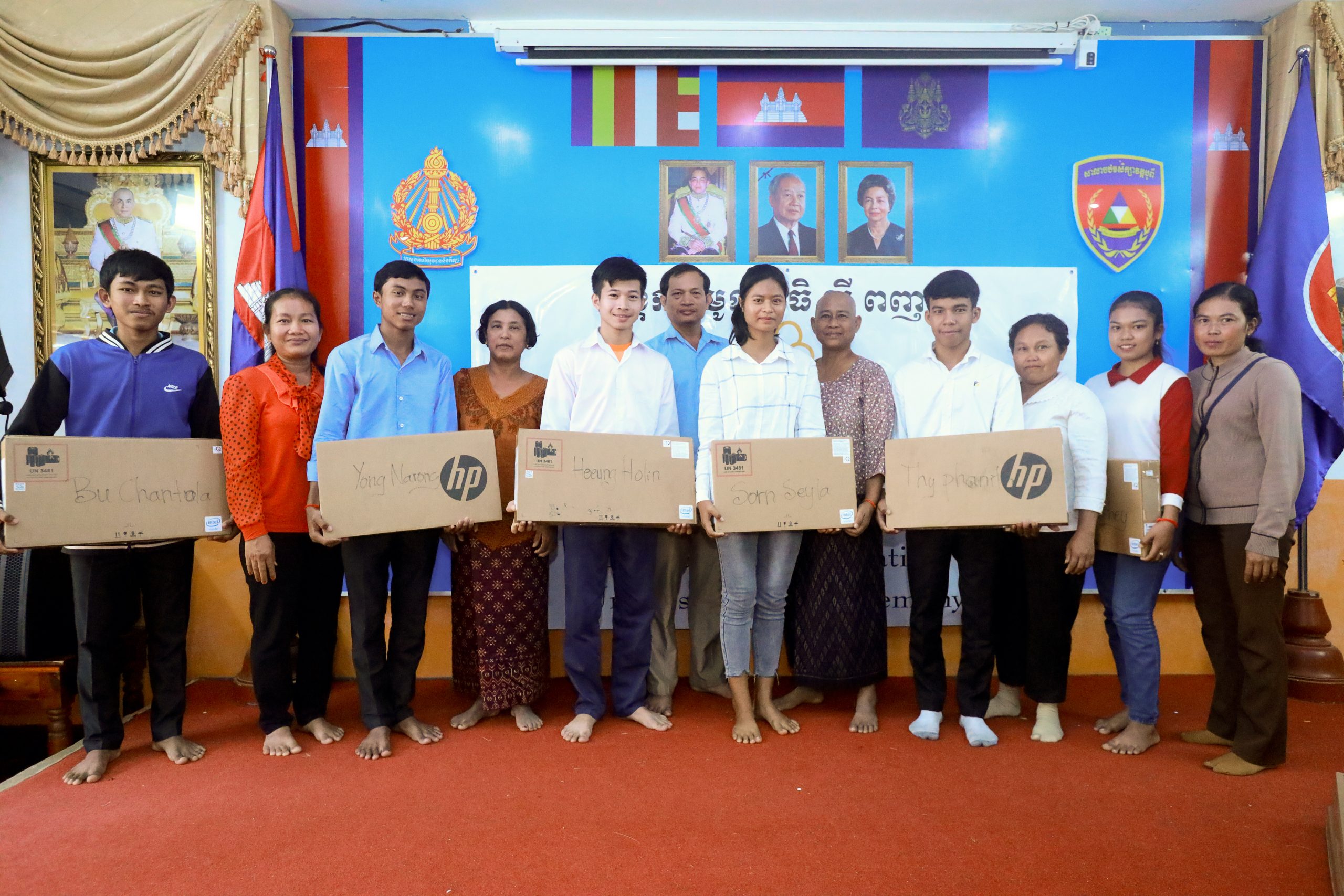
We had our annual University Awards Ceremony for our new University students in the middle of November. It’s a time when PLF, the students and their families get together to celebrate their success and get them officially signed up to their scholarships. Students were also awarded for their hard work in completing PLF’s Microsoft Office classes and each received a brand new laptop to use at University. After the formalities were over there was time for us to relax with the students and their families over lunch.
In the afternoon the students stayed behind to do short courses with PLF staff on money management, email and virus protection. Money management is especially valuable for those studying in Phnom Penh and moving away from home for the first time.
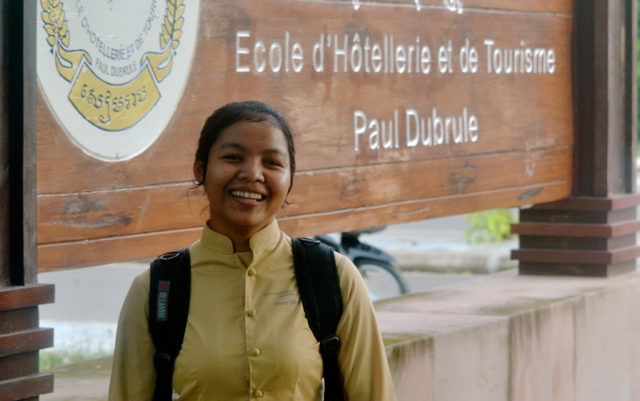
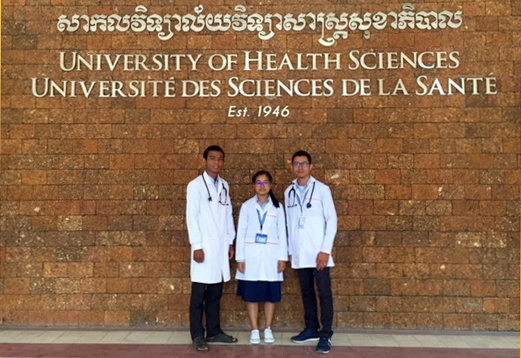
On average it costs $5-7,000 for a full scholarship for a Bachelor’s Degree in Cambodia. If you’d like to help us open the gate for more of these students to become the agent of change for their families, be in touch.
Learn more about our University and Vocational Training
Be part of The Ripple Effect

Recent Comments